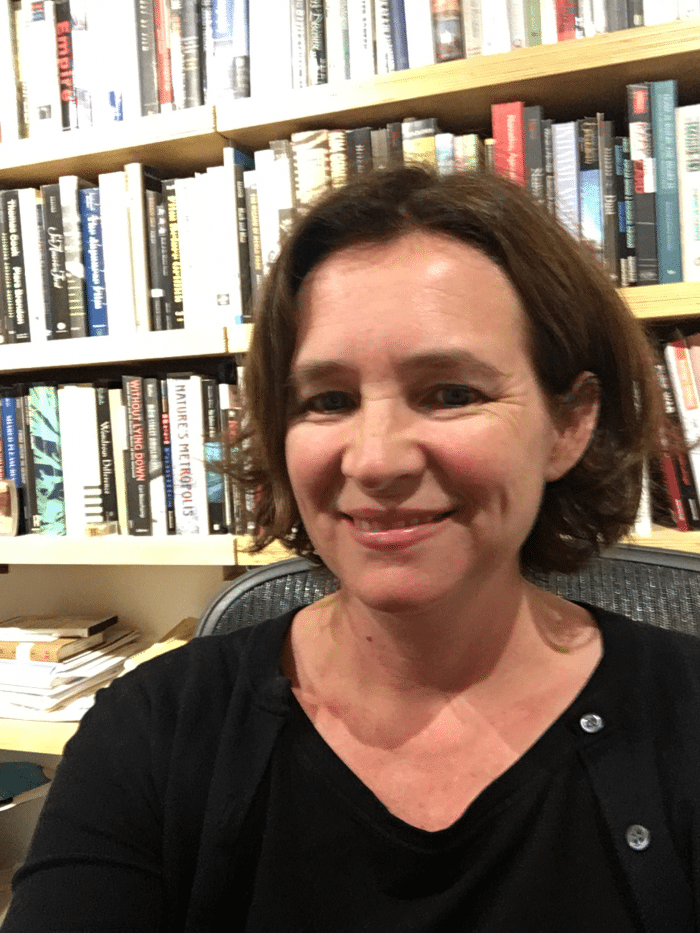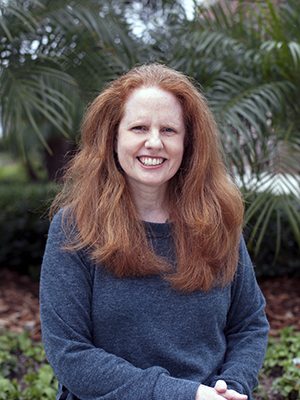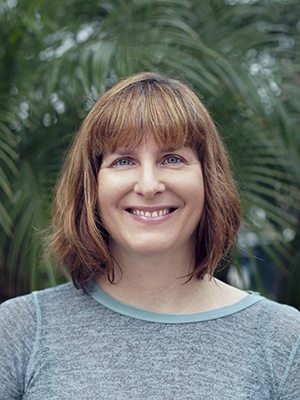Woodbury Launches Newly Renamed Media Studies Program
“Our new name, Media Studies, indicates that we study media to teach essential analytical skills such as critical thinking, research, and writing.”
– Dr. Jennifer Peterson, Chair of the Media Studies Program
Woodbury is pleased to announce the launch of its newly revised and renamed Media Studies program, which is an update of its former Communication program.
We sat down with the Chair of Media Studies, Professor Jennifer Peterson, along with Professor Nicole Keating and Associate Professor Kristen Fuhs, to learn more about the curriculum, the reasons behind the name change, career opportunities, and what students can expect from a Media Studies major.
Why did the Communication program change its name to Media Studies?
Dr. Peterson: We renamed our program to keep current with academic disciplines and to clarify the focus of our program.
Media Studies contends with the moving-image media ecosystem we inhabit today. It’s estimated that most Americans see at least 5,000 ad images daily. Smartphones and streaming media surround us with stories, characters, fictional worlds, and news all day long. Social media shapes fans, taste cultures, and belief systems in new and unprecedented ways. Our program’s strength is in teaching students how to analyze and write about media, with the goal of helping our graduates work with and actively shape the evolving forms of media in our digital age.
While “Communication” is a broad field of study that emerged in the 1960s with the first wave of serious attention to what was then called “mass communication,” the field has split into several directions over the past 50 years. We are not a journalism school—though we do offer a course in digital journalism. Rather, our new name of Media Studies indicates that we study media to teach analytical skills such as critical thinking, research, and writing. These are the skills that employers consistently rank as the most important in job candidates today. It takes work to develop these skills, but once mastered, they are adaptable, and will serve you for life.
Why get a degree in Media Studies now?
Dr. Fuhs: We live in an era of digital transformation where we are surrounded by screens. We live our lives on and through these screens—a fact that has never been more true than this past year, when the COVID-19 pandemic forced many of us into a state of socially-distanced isolation. Screens became our primary access point to the world around us. Developing the critical tools for understanding how media works to affect perception and structure meaning is a vital skill for participating in our modern, democratic society. It’s important that we learn how to effectively read, watch, and listen so that we can better interpret and analyze what goes on around us.
Students interested in this field should choose a degree in Media Studies because it provides them with a broad critical and analytical foundation for understanding the history, aesthetics, and industry of media, and that foundation will serve them well as they embark on their careers—especially those in the entertainment industries.
What specific skills do your students learn?
Dr. Keating: One of the most compelling aspects of our program is the hybrid learning model combining theory and practice. Students develop conceptual and historical understanding, as well as hands-on digital media production skills. It is in the combination of these endeavors that students gain greater insight into media representation. Through courses in broadcast media, production electives, and media + social change, students practice digital media skills, an experience that proves invaluable whether or not students decide to work in production per se. In all of our courses, students also strengthen research, writing, and analytical thinking skills. They learn how to communicate effectively and are poised to apply these skills in various media fields. No matter what careers students decide to pursue, the ability to think clearly, speak persuasively, and write coherently provides a solid foundation for lifelong learning and achievement.
What specific courses do your students take?
Dr. Peterson: Our students take a mix of critical studies courses and practice courses. In the first two years, our foundation courses include Intro to Media Studies, Media Audiences & Methods, Media Industries, Media History, and Media & Identity. In the third and fourth years, required courses include Cultural Studies, Media Professions, and a selection of electives from our rotating series of courses. These include a wide range of topics—Gender and Media, Race and Film, Media Authorship, TV Studies, Social Media, Film Noir, Documentary, World Cinema, History of Hollywood, Media & the Environment, and more.
Our newly revised curriculum places an emphasis on practical skills. Media Studies students are required to take an Intro to Broadcast Media course, where they learn audio capture, editing, and digital broadcast skills. Our students also take a course called Media + Social Change, where they produce a digital video or podcast on a social justice issue. Students are required to take an elective in one of the other production/making programs on campus, such as Filmmaking, Animation, Fashion Design, Graphic Design, or Professional Writing. In their senior year, our students take a series of courses culminating in the production of their senior thesis project on a topic of their own design, which can be either a written thesis or a creative project such as a video or podcast.
What resources do you offer in your program?
Dr. Fuhs: The Media Studies program offers opportunities for students to apply the skills they develop in the classroom through a variety of hands-on, practice-based, co-curricular and extra-curricular opportunities. Two such opportunities are 7500 Magazine and WU Radio.
7500 Magazine is a student-run digital magazine encapsulating arts, entertainment, and culture in the San Fernando Valley. Students are in charge of every part of the production process: from developing story ideas, to writing, to editing, and to graphic design and layout. 7500 also hosts events and festivals on campus each semester, helping create a bridge between Woodbury and the local arts community. Past issues can be found at www.7500magazine.com.
WU Radio launched in the Fall of 2018, and “broadcasts” online 24/7. It can be found on the Woodbury website or accessed through Streema at https://streema.com/radios/WU_Radio. An internet radio station with a local focus and a global audience, WU Radio enables the members of the Woodbury community to get hands-on experience with radio broadcasting in the digital era. The content is an eclectic mix of music and talk, and students work with advisors to develop, produce, and broadcast their own radio programs.
Finally, while the Media Studies degree provides students with a framework for analyzing the history, theory, aesthetics, and industry of media in all its diverse forms, students are strongly encouraged to take courses (or consider minoring) in the school’s other media-focused programs, including Filmmaking, Fashion Design, or Game Art and Design. Through these courses, students have access to the school’s 4,000 ft. soundstage, post-production facilities, and state-of-the-art computer labs.
What kinds of careers do your graduates go into?
Dr. Peterson: It’s really a wide range, because Media Studies is a broadly applicable major. To give just four examples: one of our graduates is working at a music label, another is working at a high-profile film and TV production company, another is now teaching high school, and one of our 2021 graduates is headed to UC Irvine for the Master of Public Health program this fall. Many of our graduates go on work in the entertainment industry in film, TV, radio, and internet media. Others have gone on to start careers in marketing, advertising, or public relations. Still others work in the arts, health care, or the fashion and beauty industries. Some have gone on to graduate school in communication, education, business, or law school.
Like all Woodbury students, Media Studies students have to complete an internship before graduation. In the past few years, our students have interned at companies like the BBC, Warner Bros., and Bad Robot Productions, as well as KCRW Radio and the Los Angeles Rams, to name just a few. These internships have helped our students clarify their career interests and goals. In addition, in our Media Professions course, students are introduced to guest speakers working in a range of local media firms and organizations. This frank talk about career options, expectations, and experiences helps students see the wide range of professions they can pursue with a Media Studies degree.
What sets Woodbury’s Media Studies program apart from comparable programs?
Dr. Keating: While other programs tend to be either entirely theory-driven or solely production-based, we understand that both of these aspects are complementary and mutually informing. The curricular structure of MCD is based on the premise that design (literally “of the sign”) is a form of cultural expression, and our students explore topics at the intersection of media and culture. Our small size allows for this type of deeper analysis and discussion-based approach. With an ideal student-faculty ratio and a strong commitment to advising, we care about our students, value wholistic educational philosophies, and cultivate a warm, nurturing environment in our classrooms.
Is there anything else you’d like to add?
Dr. Keating: The world is currently reeling from a global pandemic, structural racism addressed by the Black Lives Matter protest movement, and environmental catastrophe associated with climate change, among other crucial issues facing humanity today. Each one of these problems is powerfully shaped by media representation. It is impossible to understand the issues of the day without factoring in the role of media in structuring ideas, values, and systems of power. Media literacy has become as important, if not more important than print literacy, and our program provides the tools necessary to investigate, interrogate, and innovate media theory and production.



Program History
The history of the Department of Media Studies at Woodbury University can be traced back to 1934 when a concentration in journalism was first offered as part of a business degree. This concentration became a major in the 1940s and continued until 1972, at which point the name changed from Journalism to Communication for a brief period, until the program was discontinued in 1978. After a twenty-year hiatus, an updated B.A. in Communication was launched in 1999, emerging from Woodbury’s general education public speaking requirement.
At that point, the emphasis of the major was on rhetoric and public communication. By 2008, there were 46 students majoring in the program, and the curriculum had been overhauled to reflect contemporary practices in the study of communication. Although the Communication Department was originally part of what is now the College of Liberal Arts, in 2006 it joined the newly formed School of Media, Culture and Design (MCD).
Since academic communication is considered the study of the “process of culture and the circulation of meaning,” it fit in well with MCD’s design programs. In 2011-12, the curriculum was revised to align more closely with the media orientation of MCD by emphasizing media studies. In 2021, we revised and updated the curriculum to focus more concretely on media as an industry and a set of evolving formal, material, and economic concerns. The department’s name change from Communication to Media Studies reflects updated frameworks in academia and in media itself.
Last Updated on August 30, 2021